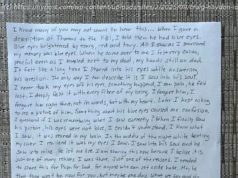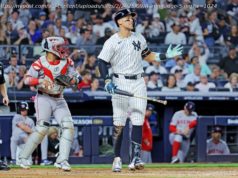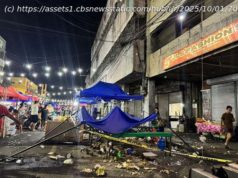Russia is expelling 23 British diplomats from the country after the UK kicked Russian diplomats out.
Just days after United Kingdom Prime Minister Theresa May said her country would expel 23 Russian diplomats over the nerve agent attack of a Russian ex-spy and his daughter on British soil, Russia is retaliating by expelling Britain’s diplomats. On Saturday, Russia’s Foreign Ministry ordered the expulsion of 23 British officials from the country.
The announcement is the latest development in an ongoing international saga that began on March 4, when Sergei Skripal, a former Soviet and Russian spy, was found unconscious on a bench next to his daughter, Yulia, in the English city of Salisbury. UK officials believe that the Skripals were exposed to nerve agent known as Novichok, which was developed in Russia. The pair remain in the hospital and are critically ill.
During a speech in Parliament on Wednesday, UK Prime Minister Theresa May laid out a plan of action to punish Moscow for poisoning Skripal and his daughter. That included expelling Russian diplomats, suspending high-level contacts with the Kremlin, stepping up security checks at borders, and having top officials boycott the World Cup in Russia this summer. The UK also said it would crack down on Russian oligarchs who stash money in London real estate and banks.
Russia responded in kind on Saturday, when the Russian Foreign Ministry summoned Laurie Bristow, the British ambassador to Russia, to tell him that 23 diplomats have one week to leave Russia “in response to the provocative actions of the British side and unsubstantiated accusations,” according to a statement. Russia also revoked permission for the UK to open a general consulate in St. Petersburg, and the British Council, a cultural and educational organization, has been ordered to stop its activities in the country.
Russian officials also warned that if Britain takes “further unfriendly actions” against Russia, “The Russian side reserves the right to take further retaliatory measures.”
It is unlikely Britain will be deterred.
May, speaking at the Conservative Party’s spring forum in London on Saturday, said the country would “consider our next steps in the coming days, alongside our allies and partners.” The UK Foreign Office said in a statement that “Russia’s response doesn’t change the facts of the matter — the attempted assassination of two people on British soil, for which there is no alternative conclusion other than that the Russian State was culpable. It is Russia that is in flagrant breach of international law and the Chemical Weapons Convention.”
Russia has denied any involvement in the March 4 incident, but there is widespread international consensus that Moscow was likely behind it. In a joint statement on Thursday, the leaders of France, Germany, the United Kingdom and the United States blamed Moscow for the attack on Skripal. They said there is “no plausible alternative explanation” for who was behind the attack and that the incident “threatens the security of us all.”
When asked by reporters in the Oval Office on Thursday about whether he believes Russia was behind the attack, President Trump said he believes so, according to that day’s pool report. “It looks like it,” he said. “I’ve spoken with the prime minister and we are in discussions. A very sad situation. It certainly looks like the Russians were behind it. Something that should never, ever happen, and we’re taking it very seriously, as I think are many others.”
The remarks and decision to join allies in the joint statement are perhaps surprising from the Trump administration, which has been cautious to criticize or punish Russia for its attacks on the United States and around the world. Just three days before the joint statement was released, Press Secretary Sarah Huckabee Sanders demurred when asked whether the White House believed Russia was behind the poison attack. President Donald Trump has consistently cast doubt onto whether Russia tried to influence the 2016 presidential election, despite broad consensus from the intelligence community that they did.
About an hour after the joint statement was released on Thursday, the US Treasury Department announced long-awaited sanctions to punish Russia for meddling in the 2016 presidential elections. The measures targeted about 25 Russian individuals and organizations, including the Internet Research Agency, a Kremlin-linked troll farm that sought to interfere in the election. “The administration is confronting and countering malign Russian cyber activity, including their attempted interference in US elections, destructive cyber-attacks, and intrusions targeting critical infrastructure,” Treasury Secretary Steven Mnuchin said in a statement .
While the sanctions are a step, they may not be strong enough to have a significant effect. “It’s a good move by the administration to impose sanctions” and show solidarity after the Kremlin’s attack in the UK, Alina Polyakova, a Russia expert at the Brookings Institution think tank, told Vox’s Alex Ward, “but it’s still not enough to respond to growing Russian aggression.” President Trump himself has not publicly weighed in on the sanctions.
Russia’s retaliation against the UK on Saturday comes a day before the Russian presidential election, which President Vladimir Putin is widely expected to win .






